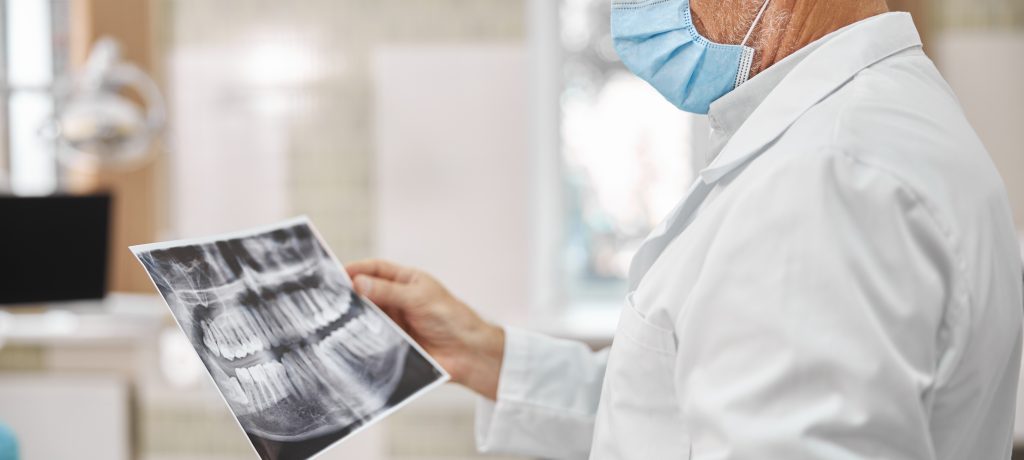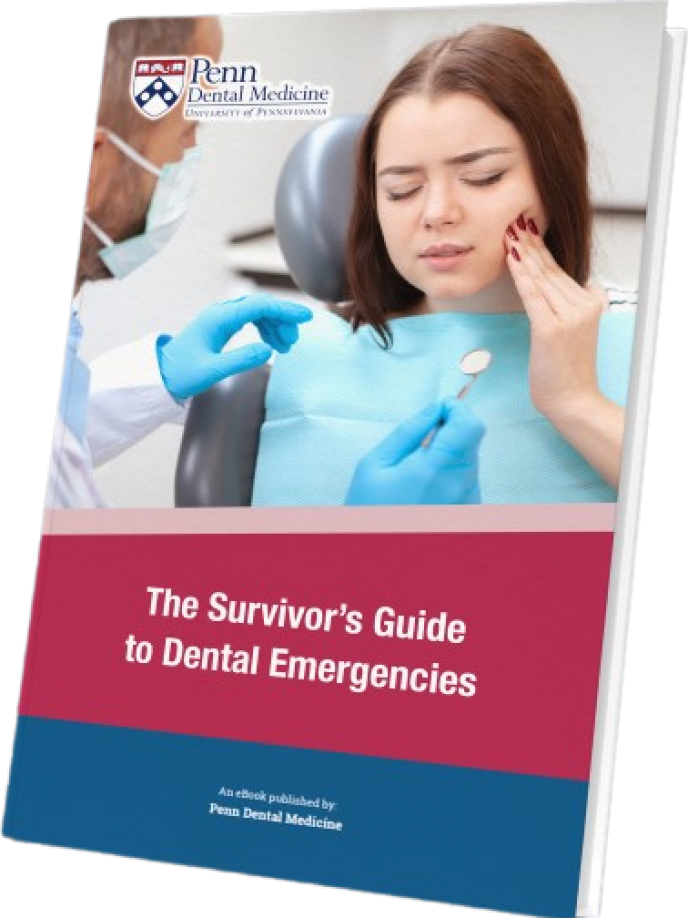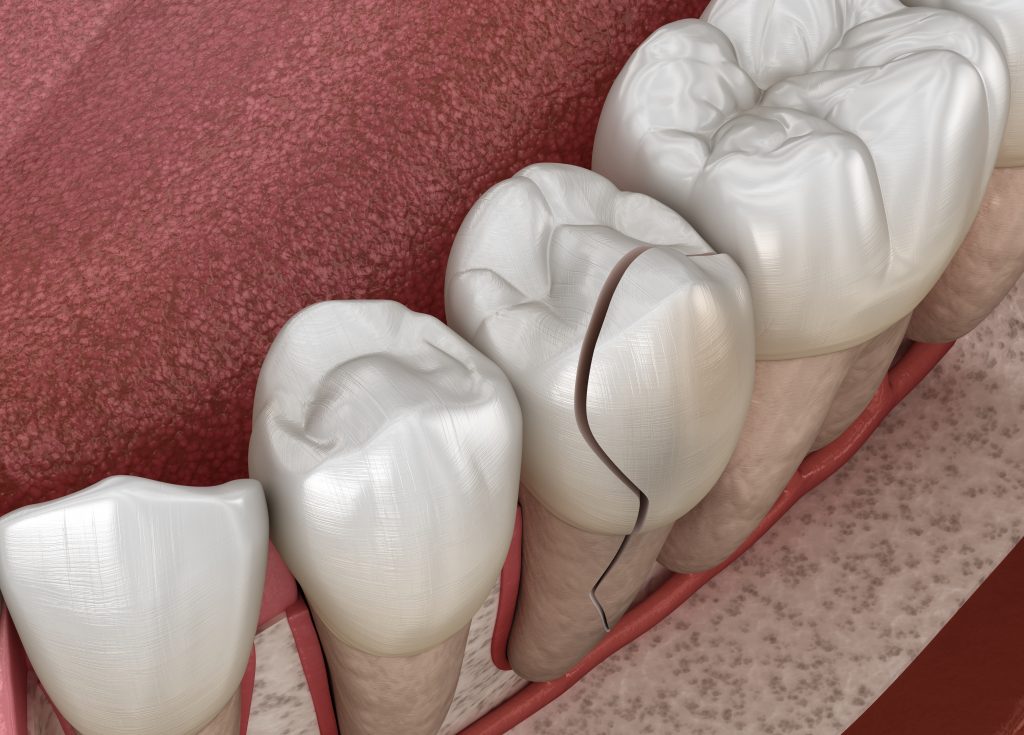Resource Library
Start Reading

Is it a dental emergency if you break a tooth? Yes, it is—even if that broken tooth causes no pain. Left untreated, a chipped, cracked, or broken tooth can lead to more problems down the road. You need to see a dental professional who can evaluate and fix the damage as soon as possible.
At Penn Dental Family Practice (PDFP), we see plenty of broken teeth. Read on so you’ll know what to do if you have to deal with a broken tooth.
Don’t leave yourself scrambling during a dental emergency. Download this guide so you can prepare ahead of time.

 A variety of factors can cause teeth to break, including:
A variety of factors can cause teeth to break, including:
Broken or fractured teeth come in many forms. Some, you may not initially notice. Others, you’d be hard-pressed not to notice.
Craze lines are small, usually shallow cracks in tooth enamel. They are typically harmless and don’t cause pain or discomfort, but some patients find them aesthetically displeasing.
A fractured cusp is a condition in which part of the pointed or elevated section of a tooth is cracked or broken.
When a small part of the tooth’s outer enamel or dentin (the soft tissue directly underneath) breaks off, the tooth is chipped. Chips range from purely cosmetic to ones that expose the tooth’s inner pulp.
When the tooth is cracked, a vertical split extends from the crown to the gum line.
When a fracture extends below the gum line and breaks a tooth into two or more pieces, the tooth is split.
A vertical root fracture starts beneath the gum line, at the tooth’s root, and extends up toward the crown.
 Symptoms of a broken tooth can include:
Symptoms of a broken tooth can include:
If you suspect your tooth broke, visit a dentist as soon as possible for an accurate diagnosis and appropriate treatment.
Molars—the flat teeth used to grind food—sit at the back of your mouth. Molar breaks may be more difficult to see. Your tongue may feel a sharp edge or rough surface before you spot any damage.
If the break in the molar is severe, it may be visibly split or completely broken off at the gum line. The molar may appear yellow or pink from exposed dentin and pulp. Dark brown or black may indicate decay.
How serious is a broken molar? Potentially quite serious. Even if the broken or chipped molar causes no pain, seek a dentist’s attention as soon as possible, as with any broken tooth.
Neglecting to address broken, cracked, or chipped teeth can lead to more serious issues. The damage can worsen and lead to infection of the pulp or root canal. A broken tooth is also prone to further wear and tear in its weakened state.
When people ask us how to fix a broken tooth, we tell them only a professional should do so. Attempting to fix the tooth yourself could cause permanent damage.
If you’re experiencing pain or bleeding, here are some tips:
 Endodontists are dentists who specialize in saving cracked teeth. They customize treatment to the crack’s type, location, and severity.
Endodontists are dentists who specialize in saving cracked teeth. They customize treatment to the crack’s type, location, and severity.
When faced with a broken tooth, an endodontist will first assess the extent of the break. If it’s a minor chip or crack, they may be able to fix it with dental bonding or a dental filling. A dental veneer can also provide a durable, aesthetically pleasing solution.
To fix more extensive breaks, the endodontist may perform a more involved procedure. They may place a dental crown (a custom-made cap covering the damaged tooth) or dental implants. Dental implant surgery involves placing a replacement root and attaching a prosthetic tooth.
For many people, pain drives them to the dental chair with a tooth injury. However, a cracked or chipped tooth doesn’t always hurt. If the break in your tooth doesn’t reach the pulp, the innermost part of the tooth that contains the tooth’s nerve endings, it likely won’t hurt. Similarly, some cracks only hurt when chewing, especially when releasing a bite.
Whether your tooth hurts or not, if you have suffered an injury, you need to have a dentist check your tooth. Only your dentist can determine whether treatment is necessary and how to repair a broken tooth so that it doesn’t cause trouble for you in the future.
To learn more about how to repair a broken tooth, call us anytime at (215) 898-PDFP. Or, schedule a visit now.